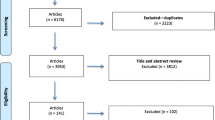Abstract
Should a firm favor insiders (handicap outsiders) when selecting a CEO? One reason to do so is to take advantage of the contest to become CEO as a device for providing current incentives to employees. An important reason not to do so is that this can reduce the ability of future CEOs and, hence, future profits. The trade-off between providing current incentives and selecting the most able individual to become CEO is the focus of this paper. If insiders are good enough (better or nearly as good as outsiders), incentive provision to insiders typically dominates and it is optimal to handicap outsiders, sometimes so severely that they have no chance to win the contest. However, if outsiders are sufficiently better than insiders, selection dominates and it is the insiders who are severely handicapped. This finding is in sharp contrast to the existing literature which has so far ignored this trade-off. In all, our model provides useful insight into contests to become CEO and rationalizes empirical regularities in the source of CEOs chosen by firms. In particular, our analysis helps to explain the lower tendency of firms in more heterogeneous industries and firms with a product or line of business organizational structure to select an outsider as CEO.
Similar content being viewed by others
References
Aggarwal R.K., Samwick A.A. (2003). Performance incentives within firms: the effect of managerial responsibility. J Finance 58:1613–1649
Agrawal, A., Knoeber, C.R., Tsoulouhas, T.: Are outsiders handicapped in CEO successions? J Corp Finance (2005, forthcoming)
Chan W. (1996). External recruitment versus internal promotion. J Labor Econ 14:555–570
Crémer J. (1980). A partial theory of the optimal organization of a bureaucracy. Bell J Econ 11:683–693
Faria J.R. (2000). An economic analysis of the Peter and Dilbert principles. Unpublished manuscript, University of Technology, Sydney, Australia
Lazear E.P., Rosen S. (1981). Rank-order tournaments as optimum labor contracts. J Polit Econ 89:841–864
Lazear E.P. (2004). The Peter principle: a theory of decline. J Polit Econ 112:S141–S163
Miller G. (2005). Solutions to principal-agent problems in firms. In: Ménard C., Shirley M.M (eds). Handbook of new institutional economics. Springer, Berlin Heidelberg New York
Nalebuff B.J., Stiglitz J.E. (1983). Prizes and incentives. Bell J Econ 14:21–43
Parrino R. (1997). CEO turnover and outside succession: a cross-sectional analysis. J Financ Econ 46:165–197
Rosen S. (1986). Prizes and incentives in elimination tournaments. Am Econ Rev 76:701–715
Skaperdas S. (1996). Contest success functions. Econ Theory 7:283–290
Author information
Authors and Affiliations
Corresponding author
Additional information
JEL Classification Numbers D21, D82, L2
We thank David Flath, Armando Levy, Steve Margolis, Claudio Mezzetti, Paul Pecorino and Jan Zábojník for very useful suggestions. The paper has also benefited from comments by the participants of seminars at North Carolina State University and at the Virginia Polytechnic Institute
Rights and permissions
About this article
Cite this article
Tsoulouhas, T., Knoeber, C.R. & Agrawal, A. Contests to become CEO: incentives, selection and handicaps. Economic Theory 30, 195–221 (2007). https://doi.org/10.1007/s00199-005-0060-8
Received:
Accepted:
Published:
Issue Date:
DOI: https://doi.org/10.1007/s00199-005-0060-8




